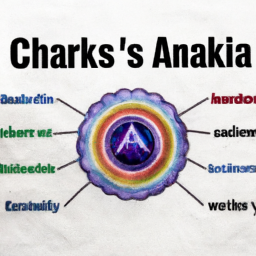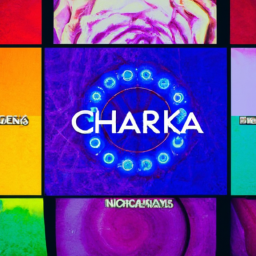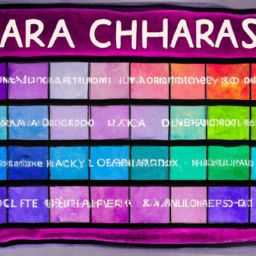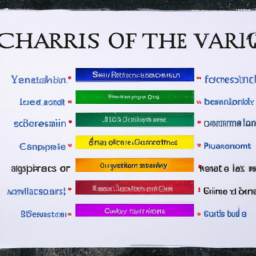?
Chakras have been a topic of interest for many individuals over the centuries. These energy centers, as described in ancient Eastern philosophies, are believed to be the pathways that connect the physical and spiritual aspects of our being. However, many people question the scientific validity of chakras and whether they have any practical impact on our well-being. In this article, we will dive into the science behind chakras and explore their significance in our overall health.
The Concept of Chakras
The term “chakra” is derived from the Sanskrit word meaning “wheel” or “circle”. In Eastern belief systems, there are seven main chakras, each located at different points along the spine, which correspond to different organs and glands in our body. These chakras are described as spinning discs of energy that are responsible for our physical, mental, and spiritual well-being. It is believed that when these energy centers are blocked or out of balance, it can lead to physical, emotional, and spiritual imbalances.
The Science Behind Chakras
While the concept of chakras may seem mystical or esoteric, many scientists and researchers have delved into this topic to understand the underlying scientific principles behind chakras. According to mainstream science, chakras can be seen as a metaphor for the network of neurons in our body. Just like how our thoughts and emotions are formed by electrical impulses in the brain, the chakras can be seen as energy centers that regulate our physical and spiritual health through a complex system of nerve impulses.
Moreover, researchers have found that acupuncture points in the body, which are also believed to be connected to chakras, correspond with the locations of major nerve bundles. This suggests that there is a physical and structural basis to the concept of chakras.
The Role of Chakras in Our Well-Being
Chakras are not only believed to be responsible for maintaining our physical health, but also play a crucial role in our emotional and mental well-being. Each chakra is associated with a specific color, corresponding to different frequencies of light. This suggests a possible connection between chakras and the functioning of our endocrine system, which produces hormones that influence our mood and emotions.
In addition, it is believed that our thoughts and emotions, which are electromagnetic in nature, can influence the vibrations within our chakras and either block or activate them. This explains why our chakras can be affected by our thoughts and emotions, and in turn, have an impact on our overall well-being.
The Importance of Balancing Chakras
When our chakras are balanced and in harmony, we are believed to be in a state of optimal health. However, in today’s fast-paced and stressful world, our chakras can easily become imbalanced due to various factors such as negative thoughts, unhealthy lifestyle choices, and environmental toxins.
To maintain a healthy chakra system, it is recommended to practice activities such as yoga, meditation, and Reiki, which are believed to restore balance and flow of energy in our chakras. There are also various foods, colors, and crystals that are associated with each chakra and can aid in balancing them.
Conclusion
While the scientific community may not fully embrace the concept of chakras, there is evidence to suggest that there is a physical basis to these energy centers. Whether we choose to believe in their metaphysical significance or not, it is clear that chakras play a vital role in our overall health and well-being. By understanding the science behind chakras and incorporating practices to balance them, we can lead a more fulfilling and holistic life.





Fascinating! Looks like an interesting article.
JadrianMckay: Intriguing! Interesting!
This article looks to be an interesting read into the scientific research behind chakras!
Definitely looks like a great source of knowledge to explore!